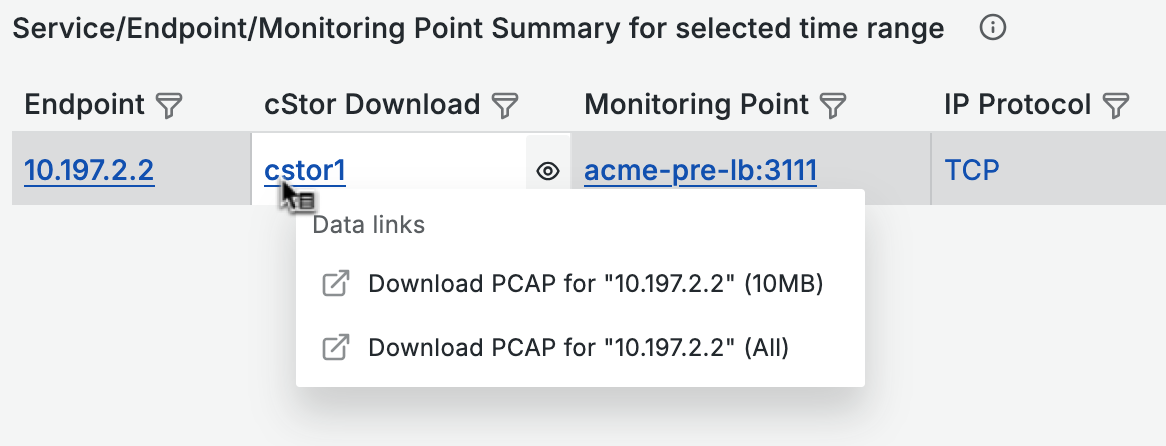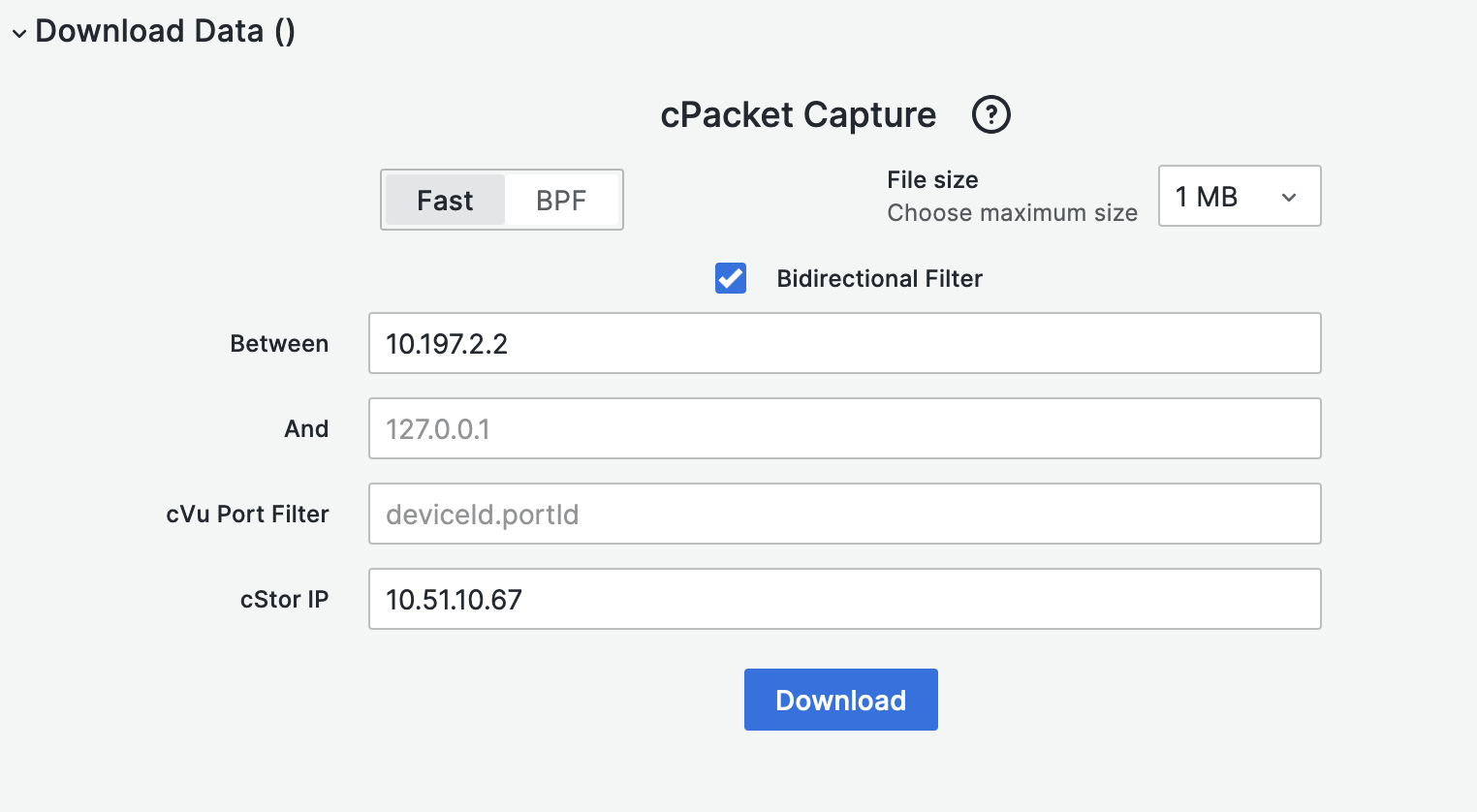6.3.3. Capture packet data
Packet capture enables you to collect, store, and retrieve data packets from your network traffic. You can download a packet capture (PCAP) file for analysis using a third-party tool, such as Wireshark.
Packet capture using the table
You can download packet capture (PCAP) files from the table on the Level 3 and Level 4 Troubleshooting dashboards. The download uses the time range defined for the dashboard.
To download a PCAP file, select a cStor device name in the cStor Download column of the table.

You can choose to download a 10MB file or select All to download all available data for that time range.
Packet capture using the capture panel
You can download packet capture (PCAP) files using the cPacket Capture panel found on the Level 3 and Level 4 Troubleshooting dashboards.
Scroll to the bottom of these dashboards and expand the Download Data panel. The cPacket Capture panel allows you to set the filter type, either Fast or BPF, set ranges for IP addresses and port filtering, as well as select available cStors.
 |
Filtering criteria can be applied to select specific traffic profiles to download. Directional and bidirectional fast filters, as well as a BPF filter, can be entered to provide flexibility in selecting and downloading specific packets. Fast filters allow you to search and download packets matching specific IP addresses as well as specific port filtering.
The cPacket Capture panel allows you to set the following capture parameters:
Parameter | Function |
|---|---|
Fast filter | Search and download packets matching specific source and destination IP addresses as well as a cVu port. |
BPF filter | Write filters using Berkeley Packet Filter (BPF) syntax. |
File size | Specify the maximum size of the file to download. If this value is less than the PCAP to download, the PCAP will be automatically truncated. Use All to select all data for download. |
IP range | IP addresses should be a valid IPv4 address with or without a specified port. For example:
|
cVu Port Filter | Enter the cVu port as a period-separated number consisting of the cVu device ID and port number. For example, 138.2. |
cStor IP | Enter a comma-separated list of cStor IP addresses. IP addresses should be a valid IPv4 address with or without a specified port. For example:
|
If you select BPF as the filter type, you can refer to the BPF syntax guide for examples of BFP syntax.
To start the PCAP download, click the Download button in the cPacket Capture panel. Once a download is started, you can use the cancel feature of the browser to cancel the download.